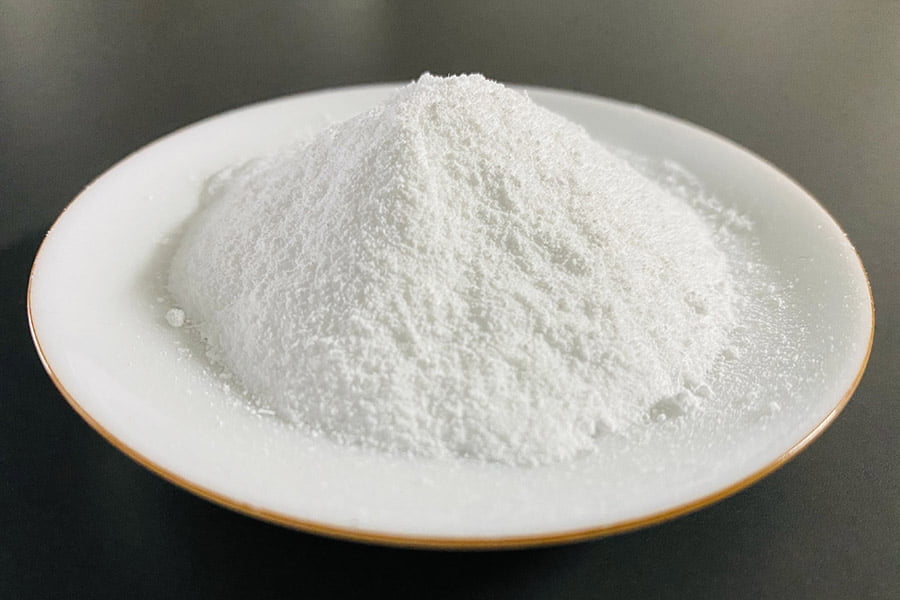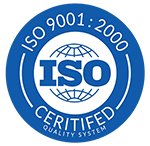Microsílice blanca (Humo de sílice de circonio)
Microsílice blanca, también conocido como humo de sílice de circonio o 99% humo de sílice sin destitabilidad. Actualmente, El humo de sílice blanca disponible en Henan Superior Abrasives es 99% humo de sílice sin destitabilidad, SiO2 >94%, ZRO2 <2% de humo de sílice.
La microsílica blanca tiene buenas características de mejora de la fluidez, y puede estar bien disperso bajo la acción de dispersante. El tamaño de partícula fina del humo de sílice puede mejorar la distribución de partículas en fundibles refractarios, llenar los vacíos entre partículas grandes, aumentar la densidad de castibles, reducir la tasa de vacío, y hacer que los castibles sean auto-fluyendo con menos demanda de agua. Actualmente se utiliza en grandes cantidades en concreto de alta resistencia., materiales refractarios, materiales de aislamiento, revestimiento químico, pozos de petróleo cemento y otros campos.
La microsílica blanca es un micro polvo indeterminado con estructura esférica, que tiene alta pureza, blancura, alta actividad, alta conductividad térmica, Alto aislamiento y resistencia al alto tiempo, etc.. El humo de sílice blanco se puede usar ampliamente en concreto, materiales refractarios, materiales de pared, productos de cemento, mortero, piso, Industria química y otros campos importantes utilizados en proyectos especiales.
Solicitar cotización personalizada
Características
- Alta pureza, blancura, Tamaño de partícula ajustable y controlable, distribución uniforme.
- Buena resistencia al clima, buena estabilidad química, Excepto por el ácido hidrofluórico, reacción álcali fuerte, no reacciona con ninguna otra sustancia.
- Alta dureza y alto sexo de humo de sílice mejoran la resistencia a los arañazos de la película de recubrimiento.
- Baja pérdida dieléctrica y dieléctrica, es el material de llenado ideal para productos electrónicos y eléctricos.
- Baja absorción de aceite, baja viscosidad, buena dispersibilidad y fluidez.
Aplicaciones
- Concreto de alto rendimiento: La microsílica blanca se usa para producir concreto de alto rendimiento con una fuerza mejorada, durabilidad, y resistencia al ataque químico.
- Materiales refractarios: Debido a su alta pureza y bajo contenido de hierro, El humo de sílice de circonio es un ingrediente esencial en la producción de materiales refractarios como ladrillos, Cáscara, y revestimientos monolíticos.
- Cemento blanco: La microsílica blanca se usa para producir cemento blanco de alta pureza, que tiene aplicaciones en hormigón arquitectónico y decorativo.
- Cerámica: El humo de sílice de circonio se usa en la producción de cerámica avanzada, como la cerámica con sede en Zirconia, donde puede actuar como una ayuda de sinterización y mejorar las propiedades finales del producto.
- Reparación de materiales: La microsílica blanca se puede usar en materiales de reparación para mejorar la unión, fortaleza, y durabilidad.
- Cementación de pozos petroleros: Se puede agregar humo de sílice de circonio al cemento de pozos de aceite para mejorar su rendimiento al mejorar sus propiedades mecánicas, Reducción de la permeabilidad, y aumentar la resistencia al ataque químico en el duro entorno de fondo de pozo.
- Hormigón prefabricado: La microsílica blanca se puede usar en la producción de elementos de concreto prefabricados, Donde contribuye a mejorar la fuerza, durabilidad, y acabado superficial.
- Sotado Crete y Gunite: El humo de sílice de circonio se puede agregar a las mezclas de hormigón y gunita para mejorar su fuerza, adhesión, y resistencia al agrietamiento, haciéndolos adecuados para aplicaciones en túneles, minería, y estabilización de pendiente.
- Concreto de autocompactas (SCC): La capacidad de la microsílica blanca para mejorar la trabajabilidad y las propiedades reológicas lo hace adecuado para su uso en concreto de autocompactas, que requiere vibración y compactación mínima durante la colocación.
- Concreto reforzado con fibra: La adición de humo de sílice de circonio al concreto reforzado con fibra puede mejorar el enlace entre las fibras y la matriz cementosa, conduciendo a mejores propiedades mecánicas y durabilidad.
Parámetros
| Proyecto | Valor de ensayo | Valor de garantía |
|---|---|---|
| SI02(%) | 95 | 94 |
| ZR02(%) | 2 | 2-4 |
| Fe203(%) | 0.2 | 0.3 |
| AL203(%) | 0.1 | 0.2 |
| NA20(%) | 0.01 | 0.01 |
| K20(%) | 0.01 | 0.02 |
| Ca0(%) | 0.001 | 0.002 |
| Mo(%) | 0.003 | 0.005 |
| Ti02(%) | 0.04 | 0.07 |
| Pérdida al encendido(%) | 0.3 | 0.5 |
| blancura | 90 | 88 |
| área de superficie específica(m2/g) | 9 | 6-15 |
| granularityd50(u) | 1.3 | 1–2 |
| Ph | 3 | 2–4 |
Preguntas más frecuentes
Contáctenos
Obtenga una cotización gratuita
Fundado en 2001, HSA es un proveedor líder de abrasivos y humo de sílice en China, y también la fuente premium de productos de alto rendimiento para las industrias del hormigón y los abrasivos..








